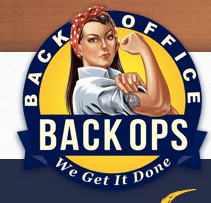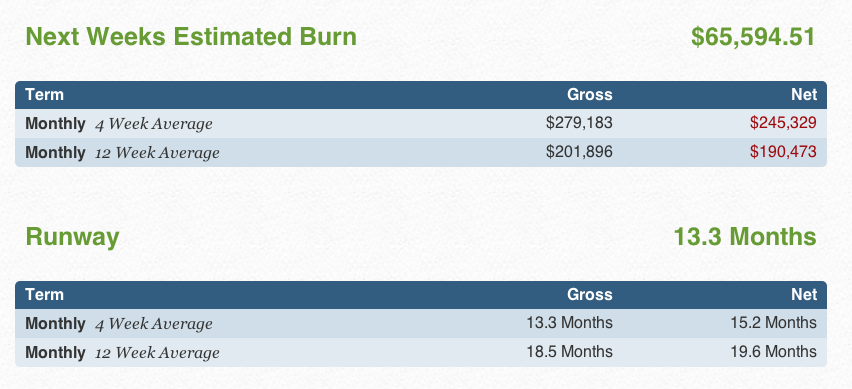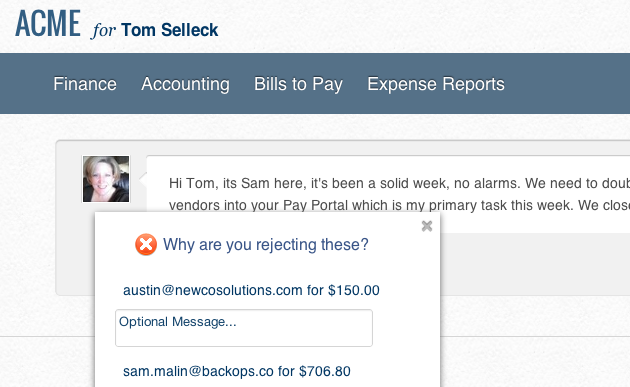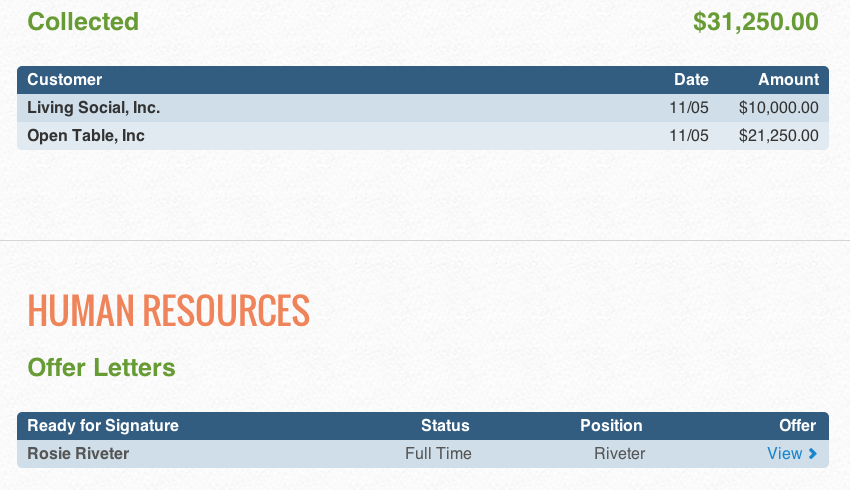Early-stage startups die if they don’t nail their core products quickly. But like all companies, they also need to process loads of paperwork required for basic operations, from crunching numbers in Quickbooks to churning out piles of human-resource forms for new hires. So, as any startup executive knows, the balance between product development and rote paperwork is a constant frustration — which is where Backops comes in.
The company, which has just closed a $1.5 million seed round, combines 15 or so modern business productivity tools with crowdsourced labor from stay-at-home workers. Startups get a simple dashboard that shows them what’s happening across the organization, from accounts received to job offers accepted.
If the exec wants more detail than the dashboard’s accounting summaries and human resource statuses provides, they can request custom reports or data dumps from Backops.
So, sure, there are a few established office outsourcing businesses out there already, like TriNet for human resources, but a closer look at Backops plans shows why it’s such a smart new idea.
The first is the overall “consumerization of IT” trend. A wave of well-designed online business software has been gradually rising over the past decade, sweeping away expensive legacy systems for accounting, HR, content management, customer relations, and more. The result is that workers can learn new systems and produce results more easily.
This fits in well with the other trend that Backops takes advantage of, which is crowdsourcing labor from people who work from home. A long list of companies, like Amazon and its Mechanical Turk, have created marketplaces for workers. Perhaps pushed by high unemployment and underemployment, more and more workers are looking for additional income through online jobs.
Backops does a few other smart things to capitalize on these trends. On the software side, it’s staying nimble, swapping in new productivity apps as they become available. Right now it’s using Expensify to help process expenses, Bill.com for bill processing, and popular accounting software like Quickbooks. It doesn’t disclose the full list of vendors, but cofounder Mark H Goldstein tells me that they just brought in a new HR system over the weekend. That adaptability is in sharp contrast to the time it would take a business to change its own internal software, or the time it would take a traditional vendor.
Even if business software is getting easier to use, experienced workers can do a better job faster. Goldstein adds that Backops has gone looking for past employees from firms like H&R Block to help staff its accounting needs.
All in all, Backops is becoming a platform for hot new enterprise startups.
The biggest issue could be defensibility. In addition to its list of vendors and its experienced employees, it also has proprietary software knitting its vendors together. Others, including modern market leaders like Salesforce and Google, could take a similar approach. In fact, both already offer platforms for other vendors to reach existing enterprise clients — just not tightly integrated like what Backops does.
The startup also has some early momentum and great investors. So far more than 50 startups have signed up, including AngelList, BadgeVille and Socialize. After raising an initial $1 million from angels including Zynga’s Mark Pincus, AngelList’s Naval Ravikant, and others last month, it has added another half a million from additional ones, including Max Levchin, and closed the large seed round.
Backops’ founding team is also well-equipped to grow the company. The CEO is Kristen Goldstein, a long-time financial officer who has dealt with these problems across the companies she’s worked at — including startups that her husband Mark has cofounded. As successful serial entrepreneurs, they have the experience, skills and connections to go big.
And going big is the plan. Mark Goldstein tells me that the plan is to grow niche by niche. Early-stage startups are an obvious place to start given the needs and the team’s familiarity with the problem (he adds that right now it’s designed for companies in seed through Series C stages, not later ones). The plan is to eventually expand into other areas, like NGOs, and various small business verticals, with Backops setups templated for the needs of each type of business.
The key for the company now is to grow quickly and establish itself as the de facto back office solution before other startups (or nimble big companies) decide to move in.



